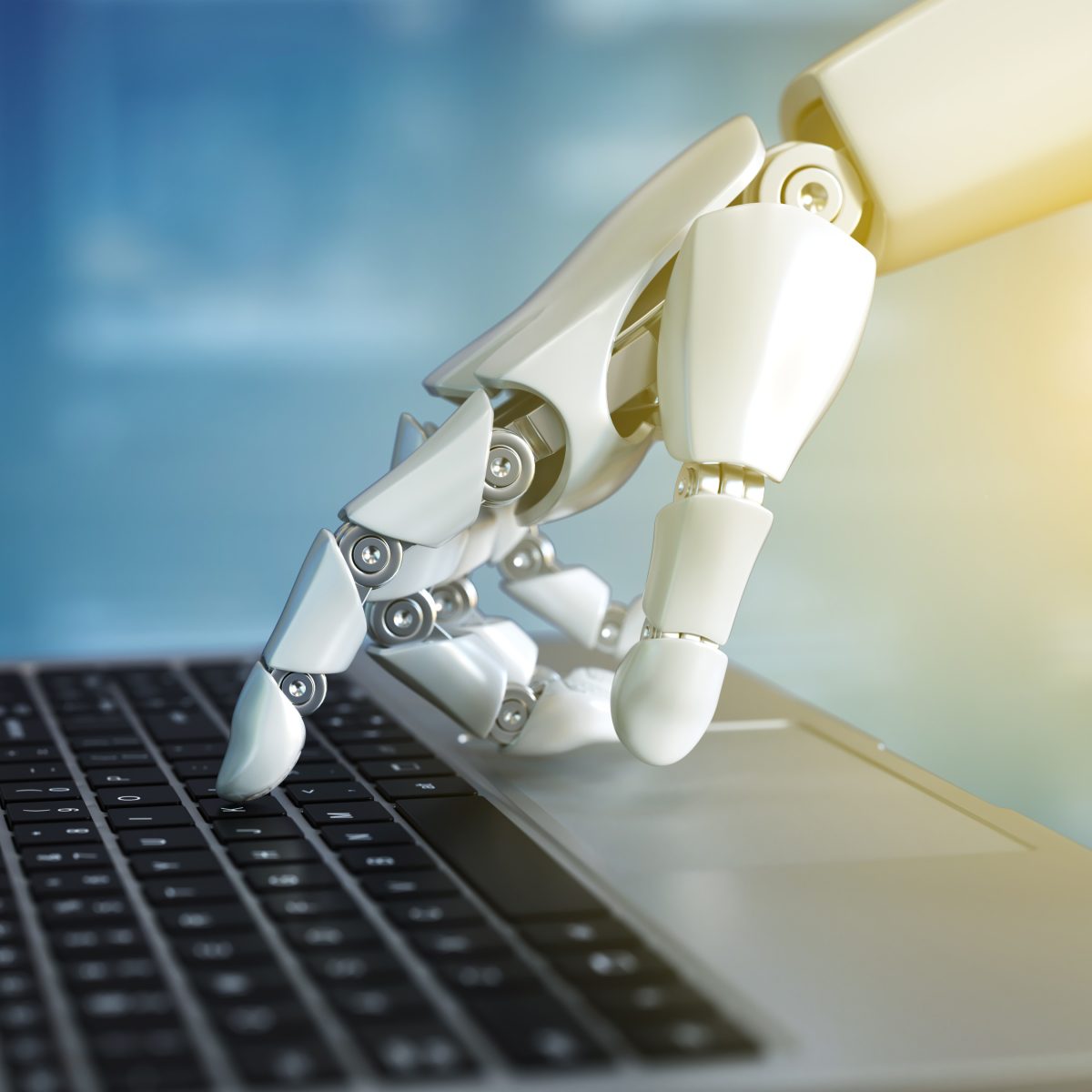Published: May 26, 2022

Common sense. A highly valued trait among our peers, partners, friends, and honestly anyone we interact with on a regular basis. Difficult to define at best, common sense is a necessary component to decision-making, helping us navigate any number of choices we must make day to day, to presumably achieve the best outcomes.
And while common sense is an inherently human trait, much like our emotions, as applications of artificial intelligence in our daily lives continue to grow, from customer service interface to smart home technology, can common sense be introduced to this technology to improve their decision-making capability? Or will technology’s inability to incorporate common sense place a hard stop on the role that AI will ultimately play? Joining me to take a closer look at the challenges of introducing common sense into AI decision-making is Mayank Kejriwal with the University of Southern California, who is leading a research team exploring this very topic.
There’s a very famous story of a grocery chain, they had a run on their toilet paper, so there were a lot of online orders for toilet paper. And there was an AI system that shut down the ordering system online because it thought there was some kind of attack that is happening on the system, and it did not realize that because of the pandemic there is a move towards stocking up on essentials. You know, it would have known that if it had common sense.
Interviewed this episode:

Mayank Kejriwal
University of Southern California
Mayank Kejriwal holds joint appointments at the University of Southern California as a research assistant professor (Department of Industrial & Systems Engineering) and research team leader (Information Sciences Institute). His research is in applied Artificial Intelligence, including healthcare, e-commerce, understanding natural disasters, fighting human trafficking, and other applications of social good. He is the co-author of an MIT Press textbook on knowledge graphs, and has published over 25 journal articles on AI and computational social science. His research is primarily funded by the US Darpa Advanced Research Projects Agency (DARPA).
Episode Transcript
Ashley Kilgore:
Common sense, a highly valued trait among our peers, partners, friends, and honestly anyone we interact with on a regular basis. Difficult to define at best, common sense is a necessary component to decision making, helping us navigate any number of choices we must make day to day, to presumably achieve the best outcomes. And while common sense is an inherently human trait, much like our emotions, as applications of artificial intelligence in our daily lives continue to grow from customer service interface to smart home technology. Can common sense be introduced to this technology to improve their decision making capability or will technology’s inability to incorporate common sense place a hard stop on the role that AI will ultimately play. Joining me to take a closer look at the challenges of introducing common sense into AI decision making is Mayank Kejriwal with the University of Southern California, who is leading a research team exploring this very topic.
Ashley Kilgore:
Mayank, thank you so much for joining me.
Mayank Kejriwal:
Thank you. It’s great to be here.
Ashley Kilgore:
So I was reading an article you shared recently on the conversation where you included a section, quick define common sense. So Mayank quick, define common sense.
Mayank Kejriwal:
All right. So common sense is, you know there are two words in common sense and that’s common and sense. And so the way I like to put it is that common sense is a natural human ability to navigate everyday life. So it’s not formally taught. It’s not something that we learn from a book or in school. It’s very natural and it’s very common to most human beings, and it’s absolutely essential for navigating our social and physical lives. And so we often underestimate it, it’s a super power as human beings.
Ashley Kilgore:
That’s excellent, well done. And for our listeners, I’ll include a link to the article in the episode notes. It’s very thought provoking. So Mayank, I think for the average person, the growing role of AI in our day to day lives might not be fully grasped. Could you share a few examples beyond those I touched on in my opening?
Mayank Kejriwal:
Sure. So we now have AI that really underpins the entire internet, so whenever you go on Amazon or on Facebook, or any of these websites, you have an AI that is actually customizing the experience, is learning to figure out what you want, what you might not want. And it’s getting really good at it. It’s a little bit creepy. So that’s one application. There’s a growing role for self driving cards like your Tesla autopilot. There’s even autonomy and aviation, there are startups that are exploring that. We may have robotic surgeons coming soon. So it’s just all over the place. And some technologies are better than others. Some applications are better than others, but I think in every role of our lives, I think there’s some role for AI and the technology is there and it’s going to become more prominent.
Ashley Kilgore:
So it’s quite obvious. AI is a powerful tool with seemingly myriad possibilities. What are some areas where the lack of common sense has caused or might cause an AI application to fall flat?
Mayank Kejriwal:
Yeah, let me give a very interesting example, when COVID struck. So as we know, we were all hoarding beans and toilet paper and whatnot when COVID struck because we were scared that the supply chain is shut down and we’re going to be out of goods and we should protect ourselves. And there’s a very famous story of a grocery chain and I won’t name the chain. They had to run on their toilet paper. So there were a lot of online orders for toilet paper. And there was an AI system that shut down the ordering system online because it thought that there was some kind of attack that is happening on the system. And it did not realize that because of the pandemic, there is a move towards stocking up on essentials.
Mayank Kejriwal:
And it would have known that if it had common sense, and this is kind of an extreme example. But we can imagine more seriously these kinds of things happening in the middle of a battlefield. If you have a drone being controlled by AI. You know, the thing about common sense is that there’s so many irregular things that happen in life. Life really doesn’t follow a formula. And common sense is a thing that keeps us grounded. We are able to reason about unusual situations, irregular situations, we’re able to think on our feet and in part that’s due creativity, but it’s also because of common sense that we are able to do that. So the toilet paper example is one, but there are many other examples like that in cybersecurity, even on social media where the AI really did something very wacky, because it didn’t have common sense.
Ashley Kilgore:
Mayank, as I touched on earlier, you are currently leading a DARPA funded team with researchers from multiple universities to explore the very topic of teaching computers common sense. Could you share how this effort came together?
Mayank Kejriwal:
Yeah. It always brings a smile to my face when I actually think about that. So it was 2018, I had been in the University of Southern California for two years. I wasn’t even really a professor yet. I would get my faculty appointment the next year in 2019. And you know DARPA has this system where they come up with programs that usually last three to four years. He’s a very ambitious high risk, high reward, revolutionary to quote their own language in these proposals programs that are really seeking to do moonshot work. You know? And so in 2018, DARPA came out with a program called Machine Common Sense, and it was exactly for this purpose that, can we teach machines common sense? And they took two directions to pursuing that. So one was, how do infants actually get common sense?
Mayank Kejriwal:
So that was more of a child psychologist direction. They wanted to really teach a machine in the same way that infants learn by navigating the environment. And then they also saw it from an adult point of view. So what is adult common sense? Can we get a machine to get adult common sense by weeding the web or by looking at data sources on the web? And so we were in the adult common sense camp as computer scientist. We were very passionate about the problem. And so the moment the opportunity came to everyone, you know the call came out, everyone knew about it. And we were like, we just haven’t tried for this. This is the kind of AI project which we dreamed about when many of us first took the AI class as an undergraduate or graduate student.
Mayank Kejriwal:
Then we kind of realized that AI is so much more narrow. We can’t address big problems like that. And now we could. And so there was this opportunity, right? You know we really didn’t want to leave any stone unturned. So I started making calls, I got my supervisor, senior professors to start making calls and we put together a team that is four universities, including us. This is Stanford, MIT, Rensselaer Polytechnic Institute and University of California Irvine, and also USC. And so we put together this big team and we wrote this proposal very collaboratively and we won. And we didn’t realize how much competition there was, but maybe that’s a good thing. So we tried our best, we put a creative foot forward and we got funded.
Mayank Kejriwal:
We were one of the three big teams that got funded and it’s really been just a very up and down kind of right because every year there is new work on this. The state of the art is advancing very quickly. And so it’s just an amazing journey and we’re still in the middle of it. So I think there’s still more to come, but it’s been an amazing journey so far. And one day we wake up and we are like, the problem is solved, what are we still doing here? And then the next year, we’re like, no, it’s not solved. AI doesn’t have common sense. So that sense it’s very up and down. Right.
Ashley Kilgore:
So now that segues well into my next question. Based on your efforts so far, do you think teaching machines common sense is possible? If so, how close are we to achieving this? And if not, what can we do moving forward to compensate for this as AI takes on a more and more significant role?
Mayank Kejriwal:
Yeah. So I think that in the long run teaching machines common sense is possible, but what I want to say about that is that when this program first came out in 2018, the view that the program had, of common sense, I would argue that we have already crossed that. So the AI community has come up with really amazing innovations where we are able to solve simple common sense problems. Like if you ask a machine, a question will an elephant fit through your dining room door. You know, there was a time not long ago when it would not be able to answer a question like that, and now it can. So we now have neural networks that can write poetry, that can read articles, that can do comprehension, that can answer questions, summarize text, and so on.
Mayank Kejriwal:
At the same time, what we are learning is that these machines can really make very simple and seemingly inexplicable kind of mistakes when they are sometimes given inputs. And so these are very simple mistakes that even a child would not make. And the AI also has problems explaining itself a lot of times. So it gives you some output, but then you’re not allowed to ask it that, okay, why did you give me this output? Can you explain yourself? So that is still a very hard problem. And there also problems with real world. It’s not just a question-answer, right? We are having social conversations, very often you’re trying to do something and there are multiple steps towards accomplishing that thing. And so in this kind of what we call multi-hop reasoning, where you have multiple steps towards a goal. It’s kind of fuzzy, you have to negotiate with people, their social reasoning, their physical reasoning, all of it comes together.
Mayank Kejriwal:
So it’s very systemic in everyday life. We still haven’t seen that ability. So we still haven’t seen all these different things come together, but I feel like we are making progress one by one. So we have some social reasoning. We have some physical reasoning, but to bring it all together in this multi-hop way that has causality and explanation and all of these things is still very far away. So that’s a long answer. I think what I’m trying to say is we have kind of made a lot of progress. Some things are possible, but complete common sense I think is many years away.
Ashley Kilgore:
Mayank, thank you again so much for joining me. This has been such a fascinating and fun topic to explore with you. Is there anything else you’d like to share with our listeners before we wrap up?
Mayank Kejriwal:
So what I would like to share with the listeners is that, the listeners should not feel that AI and technology just belongs to the technologist. I think that we are now in an era where we have to start thinking about AI in the same way we think about air and water and land and human rights, and all these issues where of course there are people who have a great deal expertise to study these things for a living, but we have a say too, right? We want to be able to say that, okay, we want to [inaudible 00:13:05] water or there’s a drought in California. So what do we do about that? Right? And so we as people have a stake in this still. And I think that AI is like that.
Mayank Kejriwal:
So I really hope that people who are listening to this, who are interested in AI start seeing this not as something that doesn’t affect them or that way, they don’t deserve to have a say. I think that they do deserve to have a say, and they should share their opinions and they should be vocal and they should learn more about this. And it’s coming, the technology is really very pervasive already and will become even more prevalent. And I think that all citizens should inform themselves about it and start having conversations
Ashley Kilgore:
Want to learn more? Visit resoundinglyhuman.com for additional information on this week’s episode and guest. The podcast is also available for download or streaming from Apple podcasts, Google Play, Stitcher and Spotify. Wherever you listen, if you enjoy Resoundingly Human, please be sure to leave review to help spread the word about the podcast. Until next time, I’m Ashley Kilgore and this is Resoundingly Human.
Want to learn more? Check out the additional resources and links listed below for more information about what was discussed in the episode.
Multi-modal Open World Grounded Learning and Inference (MOWGLI) project webpage
Designing a strong test for measuring true common-sense reasoning, Nature
